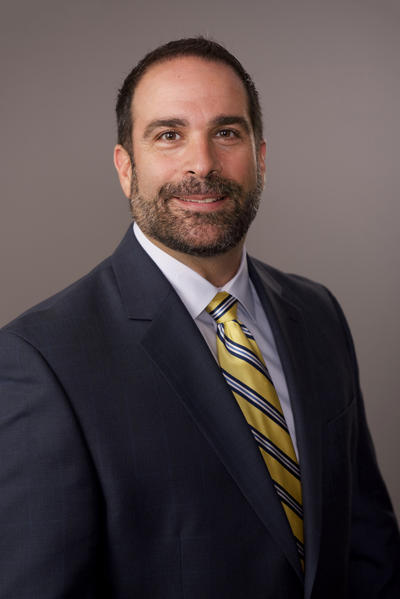Thriving as an AVP in the Midst of Organizational Change
AVP or "Number Two"
January 31, 2020
 autonomy and support they receive from senior levels of the organization. The wicked problems on college campuses require consistent advocacy at levels above the AVP in order to advance success, equity and inclusion, and wellness and safety of our students. Where things get interesting, risky, and potentially life changing for AVPs is when the person you work for announces they are moving on either to take another position or retire. For AVPs this means reporting to an outgoing leader and then possibly interim leadership until a new senior leader is in place. News of upcoming reporting line change create uncertainty and opportunity for the AVP because it requires adjusting many aspects of their daily efforts at work. It is critical for AVPs experiencing organizational changes to alter their approaches to increase communication, expand listening, and invest effort in self care practices.
autonomy and support they receive from senior levels of the organization. The wicked problems on college campuses require consistent advocacy at levels above the AVP in order to advance success, equity and inclusion, and wellness and safety of our students. Where things get interesting, risky, and potentially life changing for AVPs is when the person you work for announces they are moving on either to take another position or retire. For AVPs this means reporting to an outgoing leader and then possibly interim leadership until a new senior leader is in place. News of upcoming reporting line change create uncertainty and opportunity for the AVP because it requires adjusting many aspects of their daily efforts at work. It is critical for AVPs experiencing organizational changes to alter their approaches to increase communication, expand listening, and invest effort in self care practices.
As an AVP once you learn that your current supervisor is planning to leave the campus, it is never more important to double down on communicating the status of your projects as well as the current personnel and fiscal dynamics within your portfolio. In order to manage the expectations of campus partners involved in strategic projects you are leading, provide work direction to direct reports, and deliver agreed upon outcomes to other senior leaders across campus honest conversations need to occur with your outgoing VPSA. The strategic priorities in your purview require support and advocacy at higher levels of the organization and some may need to be paused with the announcement of pending leadership changes. For example, AVPs should not forget that your outgoing VPSA likely has less political or social capital once the news of their departure is public. In my experience, projects and relationships that were a priority under your current supervisor may not have the same urgency or might require more advocacy than is available during pending and anticipated organizational transitions.
Another key leadership skill to expand during times of change is deep listening and thoughtful observation. Considering what is being said and not said in formal meetings, the topics on workgroup agendas, and informal interactions with colleagues can all provide cues for the observant AVP. This information can help AVPs read between the lines and refine priorities and tactics to better align with the dynamics of the current ecosystem. We have all heard that listening skills can help us empathize and better understand the perspectives of our colleagues. Enhancing deep, mindful, attentive listening with colleagues further develops relationship capital and can help AVPs gracefully navigate change and avoid landmines. Explicitly reminding yourself to listen to colleagues and be thoughtful before sharing your perspective is especially critical when there is increased uncertainty in direction, strategy, or tactics due to pending leadership changes.
Changes within our organizations, while very common, impact AVPs and other staff at both professional and personal levels. Transitions create physical and emotional stress on AVPs as they consider the new landscape ahead while mourning the loss of supervisors that served as mentors and friends while offering consistent support and stability. We often emphasize the importance of self care to our students during challenging times in college and these same recommendations apply well to AVPs. During a recent transition I found tremendous value in keeping a regular routine with exercise, daily meditation and mindful practices, journaling, and pausing to appreciate life’s simple pleasures. AVPs investing in self-care will find themselves more equipped to navigate changes in their organization through an expanded network of supporters that may include a yoga instructor, a local librarian, or fellow pet owners at the park. Another strategy I found useful during times of transition was to remind myself that this was a time of uncertainty that was temporary and most importantly not something to be feared. I was pleased to find comfort in thinking about the possibilities of the future with curiosity and wonder rather than rigidity or worry.
AVPs cannot control the leadership changes that may occur in their organization but we can control how we react to them by increasing our communication and listening, using mindful practices, and investing regularly in self care as a strong foundation for moving forward. AVPs investing in these strategies will find truth in the adage that life is 10% what happens to us and 90% how we react to it. I hope you find these thoughts to be of value as your strive to thrive in your next transition.
Jeffrey M. Orgera, Ph.D.
Associate Vice Provost for Student Success
Office of the Vice Provost for Undergraduate Education
University of Nevada, Las Vegas

_________________________________________________________________________________________________
Interested in contributing to NASPA's AVP Blog? Contact Kevin McCarthy, AVP for Student Affairs and Dean of Students at North Central College, via kemccarthy@noctrl.edu.